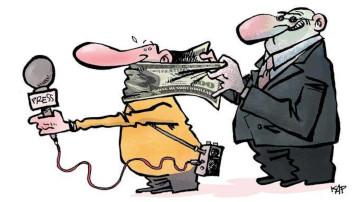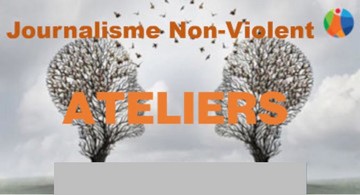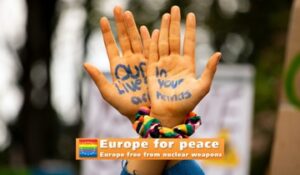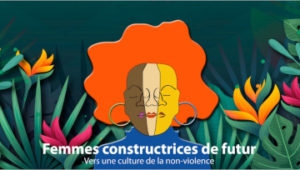AGORA OF THE INHABITANTS OF THE EARTH
Brussels, 26 November 2020
For the global health, res publica
Proposals on the occasion of the 37th Special Session of the UN General Assembly dedicated to Covid-19 (3-4 December 2020) at the level of Heads of State and Government
- Some basic data
- We live in the age of the Anthropocene, globalisation of the human condition and the global community of life on Earth.
- Human beings simultaneously face several serious global structural crises for which they are largely responsible.
- The current pandemic is a global scourge: more than 53 million people infected, more than 1.3 million deaths. Unspeakable human and family suffering. Devastating consequences on work, daily life, the economy, relations between people and peoples, and the future of living together. No one is spared and no people can « save » themselves if others are not also « saved ».
- In spite of the enormous efforts and sacrifices costing the lives and health of health workers around the world, health systems have shown significant gaps and inadequacies due, in the prevailing opinion, not only to the exceptionality of the pandemic but also to strategies pursued over the last 30 years that have favoured above all profitable investments.
- Inequalities in the right to health have worsened as part of a general increase in impoverishment. According to biennial Poverty and Shared Prosperity Report of the World Bank the COVID-19 pandemic is estimated to push an a additional 88 million to 115 million people into extreme poverty this year, with the total rising to as many as 150 million by 2021.[1]
- The resulting social fractures make it more difficult to implement measures and actions in line with common, shared objectives, in the interest of all, especially the weakest who are at risk. The spirit of survival and nationalist, racist and class divisions have been reinforced.
- With a few exceptions, the commodification and privatisation of health systems have contributed to the transfer of decision-making powers to private global industrial, commercial and financial subjects. National political powers, which are responsible for the processes of commodification and privatisation, are less and less able to design and impose a global and public health policy in the interest of the world’s population.
- The vaccine market (a growing sector but one that remains « small » in the overall health industry market) is valued at about $29.64 billion in 2018 and is expected to grow to $43.79 billion at a CAGR of 10.3% through 2020.[2] This is the weight of financial interests that push patent-holding companies to refuse to accept any revision of the regime for patents on living organisms.
- The sector is marked by a high degree of concentration: four major pharmaceutical groups dominated in 2019 in terms of turnover generated by the marketing of vaccines. Leading the way is the British company GlaxoSmithKline, followed by the American Merck and Pfizer, with 7.3 and 5.9 billion euros respectively, and then the of French company Sanofi with over 5.8 billion euros last year.[3]
- Concentration of vaccine production is also impressive. Europe currently accounts for three-quarters of global vaccine production. The rest of the production is divided mainly between North America (13%) and Asia (8%). In Europe, there are pharmaceutical giants such as Roche, Novartis and Bayer[4].
It is understandable – but not acceptable- why, at the WTO on October 23 this year, the European Union voted against the provisional suspension of Covid-19 vaccine trade rules. The suspension was proposed by South Africa and India with the aim of ensuring fairer and more equal production and distribution of vaccines to serve the populations of poor and impoverished countries. Rich countries refused
- In this context, science and technology – the role of which cannot be minimised in the current world situation – are strongly limited in their capacity to fulfil what It’s supposed to be their major role in supporting a healthy, just and caring life and society. They are subordinated to private corporate proprietary logics due, on the one hand, to patents on life (and on artificial intelligence) and, on the other, to global finance (financial markets).
- Structural causes to be eradicated
Like any other fundamental dimension of life, health is the result of the many interrelationships between actors and factors of a multiple nature at all levels. Although schematic and simplified, Figure 1 allows us to identify that, as things stand, the major problems and issues are located in the spheres of collective practices and government, in other words at the heart of the nodes of ‘political’ relationships, i.e. ends and goals among social groups, communities and peoples, and not at the level of means, technical or financial instruments. It is « First people » and not « First money ».
Therefore, it seems to us that it is one of the structural causes that must be eradicated to free the inhabitants of the Earth from the devastation of the pandemic:
- the fear of the present – especially for the population over 40 – and of the future due to growing inequalities and uncertainties. It will not be eradicated by money but by respect for others, solidarity and the pooling of resources;
- the commodification and monetisation of life and the privatisation of common public goods and services essential for life, particularly in the field of health. We must stop being monopolisers/predators of the goods of life, one of the advanced forms of which is represented by private for-profit patents;
- xenophobic nationalist trends in the area of security outweighing the common, shared responsibility of peoples and States for the safeguarding, care and promotion of life for all the inhabitants of the Earth. « First America » is a major example of the destructive paradigm;
- racist and elitist trends based on the alleged naturalness and inevitability of inequality of rights, imposing the culture of social exclusion in the name of merit, efficiency and financial effectiveness, among others. We must speak of the universal right to health in justice and not of equitable access to medicines (including vaccines) at affordable prices for all;
- the foundations and functioning of the global financial system, based on the total privatisation of savings and credit activities. This system feeds an unequal and unfair use of science and technology; promotes the growth of wealth inequalities between social strata and countries and leads, among other effects, to the privatisation of political power. This is the thrust of the proposals such as « science for the people », « vaccines for the people »;
- the growing weakness of real public political power in the name of governance (« governing without and/or above governments »).
- Priority areas for action
1. Affirm the fundamental principle that health matters
The health of all the inhabitants of the Earth is in itself the greatest wealth we possess. The Special Session must strongly reaffirm that, as « People of the Earth », we believe that health is a universal right and should not belong only to those who have the power to purchase the goods and services necessary and indispensable for life.
In general, inequalities in health are due to the fact that our societies are in permanent war, living in violence and struggling for appropriation of the planet’s resources. Our States must stop spending almost 2 trillion dollars a year on armaments and wars. The health of 8 billion human beings and other living species is more important than the power of conquest and extermination. A word on this subject from several heads of state and government would have an encouraging impact.
- Build the common future of all the inhabitants of the Earth by promoting and safeguarding the common public goods and services indispensable for life.
Universal rights to life for all inhabitants of the Earth logically imply that the goods and services indispensable for life, thus constituting the other side of universal rights, should be common to all, and should not be subject to private appropriation nor to exclusive collective appropriation.
They must be considered as common public goods to be safeguarded, protected and valued by the community, under the responsibility of democratically elected public authority institutions, and to be used for the realisation in justice and equality of the essential rights to life and life for all.
Water, health, seeds, housing and knowledge and education are the most obvious public commons, not least because of their inseparable relationship with rights. One of the key solutions to the structural crises mentioned is to rebuild these links, which have been systematically dissociated over the last 40 years. Patents on life (and artificial intelligence) are a strong example of the dissociation between goods that are indispensable for life, such as medical care goods (infrastructure, medicines, and so on) and the right to life.
- Abandon submission to the dictates of « In the name of money ».
« You are not profitable? You are not indispensable. In any case, your life is not a priority ». It is not because a person is not profitable for the capital invested that he or she is no longer indispensable and can be left aside, as is generally the case, despite solemn proclamations promising the contrary. Being without purchasing power does not mean becoming without rights.
It is necessary to assert without reserve that life is not money. Living beings are not commodities, resources for profit. One cannot become financially rich on the back of the health of others.
- Live in a time of daring. Towards a global political architecture at the service of the life of all the inhabitants of the Earth by 2045 (centenary of the foundation of the UN).
The fierce rivalry between large companies, laboratories and universities, supported by billions of euros from the public authorities in the name of « national security », has certainly contributed to showing the inability of the system and its rules to put in place arrangements for joint action at the global level in the interests of the world’s population. If it persists, this inability will weigh heavily on the least technologically and financially equipped populations from 2021 onwards when it comes to producing and distributing authorised and patented vaccines. The problems and challenges to be resolved in terms of the material and practical accessibility of vaccines will be enormous. These are not only problems related to logistics, but above all problems related to purposes and relations between peoples and social groups.
To date, no major pharmaceutical company has responded favourably to WHO’s proposal to pool information on the state of knowledge, the experiences gained and the problems still to be solved at the scientific and technical level. We find it difficult to understand why governments continue to support companies financially when they proclaim everywhere that they are seeking to promote global cooperation to effectively combat the pandemic.
In 25 years’ time, the UN will celebrate the centenary of its founding. The Special Session must make it clear that there can no longer be a debate on small adjustments to the global regulatory model known as « multilateralism ». Starting with water, health and knowledge, there is an urgent need to make major qualitative leaps in the direction of the « global security » of these global public goods in the interests of life for all the inhabitants of the Earth. This can be achieved, on the one hand, by creating global institutions with corresponding competences and powers and, on the other hand, by promoting specific concrete initiatives at the heart of the links between the prohibition of the production and trade of nuclear weapons, as well as bacteriological weapons, and the promotion of global public goods such as water, health and knowledge. In other words, the people of the Earth do not need new winners, new global conquerors. They need world leaders who are convinced that the future of life on Earth requires a new and urgent Global Social Pact for Life. A global health policy requires a global political architecture capable, above all, of outlawing predatory finance. One of the immediate means of action could be the decision of a significant number of countries to apply the principle of compulsory licensing, in the absence of a fair and mutual agreement between countries on overcoming the constraints imposed by the TRIPs treaties on intellectual property.
- The proposals. Life, beyond money and power
We have grouped the proposals according to the priority areas of orientation
- Apply the fundamental principle that life matters
To this end, it is necessary to change the priorities of global finance by investing in the economy of global public goods (health, water, knowledge/education) and by drastically reducing spending (almost 2 trillion euros in 2019) in the war economy (armaments, competitiveness and domination).
In this sense, the Special Session should
a. propose the creation of a public cooperative financial fund for health, as an integral part of a Global Deposits and Consignments Fund for Global Public Goods;
b. commission UNIDIR or a commission of independent experts to submit a study report on immediate reductions in military expenditure and the reconversion of its allocation to the development, production and distribution of public goods and services in the health and related fields of water, agro-food and knowledge.
- Build the common future of all the inhabitants of the Earth by promoting and safeguarding the common public goods and services that are indispensable for life.
a. recognise, as a first step, that health (goods and services) is a global public common good not subject to private and exclusive appropriation, for which responsibility must be collective, public, ensured according to the rules of representative and direct participatory democracy, at the different levels of societal organisation of human communities, from the local to the global community of life on Earth;
b. propose the convening in 2022 of a UN world conference on the issues of global public common goods, one of the aims of which would be to clarify the existing conceptions of this subject within the UN system, which are often ambiguous and contradictory. The current mystifying use of the concept of ‘global public goods’ in relation to Covid-19 vaccines underlines the urgency and importance of the proposal.
See also proposal 4.b
c. highlight the need for the re-publicisation of scientific research (basic and applied) and technological development in the service of the rights to life and security of all the inhabitants of the Earth, while also respecting the Madre Terra The pooling of knowledge and health protocols, medicines and vaccines must be part of the immediate measures to be taken. In this perspective
d. the Special Session should propose the approval of a Global Compact on Science for Life and Security for all the inhabitants of the Earth.
- Abandon submission to the dictates of « In the name of money ».
The Special Session should
a. reaffirm that the health of people, peoples and ecosystems of the Earth are priorities and must prevail over short-term economic, utilitarian, commercial, corporate and individual interests. Therefore,
b. approve the abandonment for the period 2021-2023 of application of the rules concerning patents on living organisms, in particular on all the tools for combating the Covid-19 pandemic (diagnostics, treatment, vaccines). The monopolies left to patent holders have no relevant social, ethical, economic and political value. To this end, the Member States of the United Nations and its specialised agencies, representatives of all the peoples and citizens of the Earth, commit themselves, for want of anything better, to use as of now existing instruments of international law such as compulsory licensing.
c. decide to set up a global Task Force, under the aegis of the UN, to revise the legal-institutional regime of intellectual property in the Anthropocene, the aim of which would be to abandon the principle of the patentability of living organisms for private and profit-making purposes and to define a new global regime on intellectual property in the light also of the experience accumulated in recent years in the field of artificial intelligence.
- Strengthen the functioning and work of the UN (and its agencies) in favour of the development by 2045 of a new political-institutional architecture for Humanity.
To this end,
a. recognise Humanity as an institutional subject and key actor in the global politics of life. The opening of a Global Common House of Knowledge, based on the existing pooling of knowledge, experiences, technical tools (case of Costa Rica concerning health…) will be a significant concrete step forward,
b. propose the urgent creation of a Global Public Goods and Services Security Council, starting with health, water and knowledge.
[1] Extreme poverty, defined as living on less than $1.90 a day, is likely to affect between 9.1% and 9.4% of the world’s population in 2020
[2] See https://www.globenewswire.com/news-release/2020/03/04/1994955/0/en/Global-Vaccines-Market-Insights-2015-2019-2020-2030.html
[3] https://fr.statista.com/infographie/21717/entreprises-pharmaceutiques-laboratoires-chiffre-affaires-production-vente-vaccins/
[4] https://fr.weforum.org/agenda/2020/03/leurope-domine-la-production-mondiale-de-vaccin/









